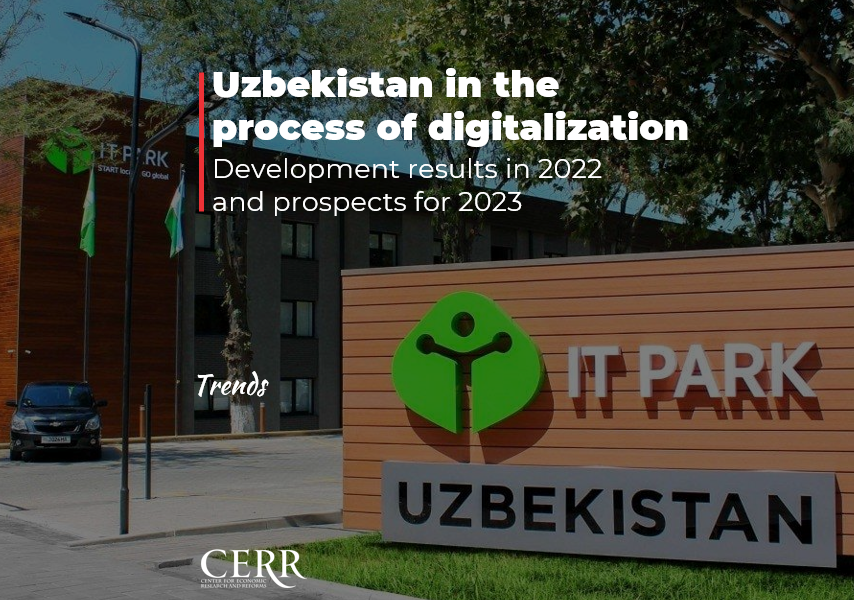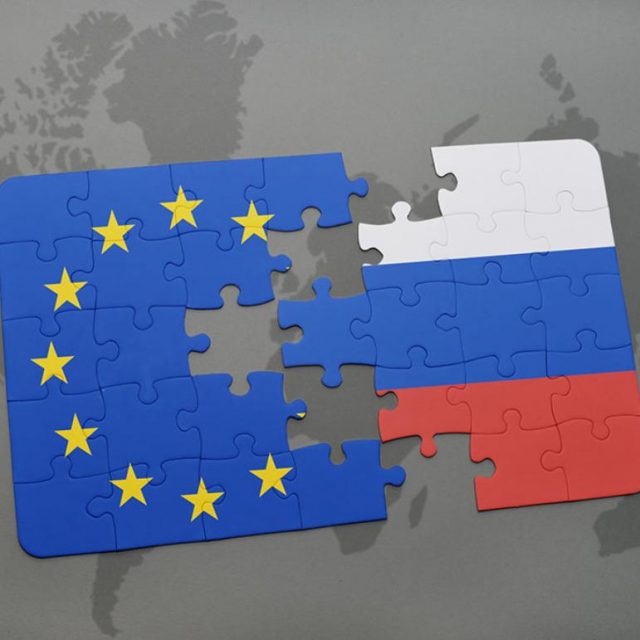Digital technologies in modern society and the state play an important role in the formation of a more perfect society and the implementation of qualitative reforms in economic sectors. That is why the country’s leadership pays special attention to the development of this sector, writes Bakhtiyor Ismailov.
In order to accelerate the process of digitalization of the economy in Uzbekistan in recent years, a number of regulatory documents have been adopted that are aimed at a deep transformation of the economy, industry and society through digital technologies. In particular, the Strategy “Digital Uzbekistan-2030”, as well as these issues are reflected in the “Strategy of Action on the five priority areas of the Republic of Uzbekistan for 2017-2021” and “New Development Strategy of Uzbekistan for 2022-2026”.
Thanks to the implementation of the measures provided for in these documents, significant results have been achieved. In particular, the volume of services rendered by the type of economic activity “information and communication” increased more than one and a half times from 2020 to 2022, from 13.9 trillion sums up to 22.9 trillion. In addition, the share of the digital economy in Uzbekistan’s GDP in 2022, compared with 2020, increased from 1.99% to 2.77%.
Exports of information and communication technology services increased from $169.3 million to $306 million from 2020 to 2022. In 2022 the export of computer programming services increased to $123 million, compared with $15 million in 2020, which indicates the realisation of the hidden potential of this sector. Currently, the number of residents of the IT-park is 1,122 companies, of which about 30% are exporters.
In addition, over the past two years, the number of foreign companies has increased to 165 units (as of 1 September 2022), compared to 18 units in 2020. This indicates an improvement in business conditions in this area.
Digital infrastructure
Telecommunications infrastructure is developing rapidly. Over the past year, a number of major investment projects worth $368.8 million have been implemented in the industry, including the development of a mobile communication network — by $208 million, telecommunications infrastructure — by $92.2 million, data centers — by $28.6 million, to improve the software development environment — by $40 million.
The development of the mobile telecommunications network is due to the installation of new generations of stations. Over the past two years, 22.3 thousand additional base stations have been installed, and their total number has reached 54 thousand. The level of mobile coverage in the republic has reached 99%, the coverage of broadband mobile Internet — 98%. To date, the number of Internet service users among the population is over 31.0 million people, and mobile Internet users — 29.5 million people.
Also in 2021-2022, due to the additional construction of 102 thousand km of fiber-optic communication lines, their total length was increased to 170 thousand km. If by the end of 2020 2.7 million households, business entities and social facilities had access to broadband Internet, then over the past two years, as a result of the installation of another 1.7 million broadband ports, they were able to a total of 4.4 million different users can connect to it.
In 2022, in order to increase the speed of the Internet, the bandwidth of international packet switching centers has been increased from 1,800 Gbit/s to 3,200 Gbit/s. The capacity of telecommunication backbone networks has been increased to 600 Gbit/s at the inter-regional level and up to 60 Gbit/s at the inter-district level.
At the same time, the tariff for Internet services for operators and providers has been reduced by 25%, compared with the beginning of 2021.
E-government
Digital technologies play a crucial role in improving the work of public authorities due to the fact that the development of the “electronic government” system will allow citizens to save time and money when obtaining the necessary documents, as well as increase the openness and transparency of the work of public authorities. At the same time, an important role in the development of the “e-government” system is assigned to a Unified Portal of Interactive Public Services.
Unified Portal of Interactive Public Services (my.gov.uz) provides more than 370 types of services online. At the same time, a single portal mobile application has been developed, which provides 165 e-government services. To date, the number of registered users on the single portal is 4 million people, and the number of services rendered through it is about 10.2 million. The most important thing is that the citizens of Uzbekistan, thanks to the digitalization of public services, have saved 40 billion sums. At the same time, all electronic public services are connected to a single billing system, which allows citizens to make payments for services in the field of housing, transport, real estate, healthcare, education, etc.
The most important result of providing these digital services is the creation of trust between the citizen and the authorities, where everyone has the right to be heard and feel part of this society. However, all of the above is just the beginning of a long journey in digital development. We still need to continue working in this direction, creating new opportunities and conditions for the development of our society.
The goal is to become a Digital Centre in Central Asia
Developing the field of information technology in the country, we have repeatedly returned to the same idea — to become a regional IT hub and turn into a competitive global player in the field of ICT. In reality, this is a very difficult task, but it can be done. To this end, in recent years, active work has been carried out to attract large foreign IT companies and experts in this field, a number of measures are being implemented to improve the attractive image of Uzbekistan in the international arena.
In February 2022, the IT Park announced the launch of IT-Visa and TashRush programmes aimed at providing assistance to relocators, including visa support, organising meetings with public and private companies, assistance in finding employment in large IT companies, etc.
To date, the number of IT specialists who arrived in the country as part of the relocation program has exceeded the mark of 6 thousand people. The number of foreign companies that have opened or expanded their business in Uzbekistan is more than 60, including companies such as EPAM Systems, iTechArt, Wargaming, IThub, Geointellect and Prow.
In addition to attracting foreign IT-companies to Uzbekistan, IT-park also opens its foreign representative offices, thereby expanding its networks around the world. Currently, IT-Park has its foreign representative offices in the USA, Germany and Latvia.
The main mission of the representative office of the IT Park is to create favorable conditions for the export of domestic goods and services, perform tasks for their popularization, conduct advertising campaigns, search for orders, assist in concluding contracts between foreign customers and residents of the IT park. In addition, the IT park acts as a guarantor for both parties – for the customer on the quality of work and for the contractor on payment for the work performed. For this purpose, insurance and surety systems have been introduced that comply with international standards.
Uzbekistan achieved good results in the international ratings for assessing the development of information and communication technologies. In these ratings, along with the place occupied, an index is indicated that takes into account several indicators assessing the state of development of this sphere in the country.
The Mobile Communication Index is compiled by the Global System for Mobile Communications (or GSMA Association), the index measures indicators in more than 170 countries in comparison with the key factors contributing to the introduction of mobile Internet. Compared to 2020, Uzbekistan has improved its performance on this index from 46.99 to 50.9 in 2021 and ranks 127th among 170 countries.
The E-Government Development Index (EGDI) is compiled by the Department of Economic and Social Affairs of the UN Secretariat based on the indicators of three sub-indices: the development of online public services, telecommunications infrastructure and human capital development. According to the indicators of this index, Uzbekistan improved its indicators to 0.73 in 2022, compared with 0.67 in 2020, and ranks 69th in the ranking among 193 states.
Digital Skills Gap Index 2021 (DSGI), compiled by the American multinational publishing company Wiley, evaluates 134 economies based on 30 indicators in 6 areas. In the latest ranking of the DSGI-2021 index, Uzbekistan ranks 76th out of 134 countries with an index of 4.6 (max. 10.0).
According to the results of the Oxford Insights’ Government AI Readiness Index in 2022, Uzbekistan improved its position by 14 positions and took 79th place out of 181 countries.
Another significant result is an improvement in the Inclusive Internet Index by The Economist Journal, in which Uzbekistan ranks 61st out of 100 countries (69.1).
Prospects for the development of the digital economy
In recent years, the digital economy has been growing at an unprecedented pace, which is largely due to the continuous development of digital technologies and the increasing use of these technologies by enterprises and individuals. This growth is driven by a number of factors, including the development of new digital infrastructure, the availability of digital devices and services, as well as the growing popularity of online activities.
However, for the further development of digitalization, it is necessary to continue the introduction of advanced information technologies in many sectors of the economy, further expansion of digital infrastructure and development of the national market of digital technologies and services, as well as improvement of legislation for IT business in accordance with international standards.
Business process outsourcing (BPO) plays an important role in the development of digital services. In order to attract foreign outsourcing companies to Uzbekistan, a major project is being implemented to create remote BPO centres. It is planned to increase the number of such centres to 100 within five years. In addition, a loan of $50 million was allocated from the funds of the World Bank for the project “Inclusive Digitalization in Uzbekistan” to create and equip remote BPO centres.
In the course of cooperation between the United States and Uzbekistan in 2022, an agreement was signed on the establishment of an Uzbek-American business process outsourcing corporation. The new corporation will outsource business processes in the field of insurance, factoring, quality control and multimedia. Within 3 years, the corporation will create 1,100 jobs and export $110 million per year.
Active work is underway to improve the image of the Uzbek IT sector in the international arena. To this end, it is planned to conduct PR campaigns in foreign countries and organize annual events Uzbekistan – New IT-destination in the USA. At the same time, the IT-park of Uzbekistan is the main business card for Uzbek programmers.
The implementation of these measures will contribute to improving the competitiveness of the IT industry and increasing the volume of exports of IT services. The Ministry of Digital Technologies of Uzbekistan has set a goal to increase the export of information technology services to $1 billion by 2028.
In addition, for the development of the space industry, Presidential Decree No.429 of November 23, 2022 “On additional measures for the further development of the space industry” was adopted, which provides for the development of high-speed Internet access via communication satellites, space navigation, remote sensing of the Earth, geographic information systems, etc.
Uzbekistan is striving to become part of the global digital economy. Measures taken at the government level aimed at making Uzbekistan an attractive place for investors and entrepreneurs in the field of ICT contribute to the achievement of this goal.
The country has made tremendous progress in creating the infrastructure necessary for the growth of the digital economy. In particular, broadband Internet access has been significantly expanded, mobile payments and e-commerce solutions have been provided. In addition, efforts were made to reduce bureaucratic barriers and encourage investment in startups, as well as to improve the skills of specialists.
The measures being implemented create a solid foundation for Uzbekistan to become an innovative regional centre of the digital economy. By creating favourable conditions for supporting technological enterprises and providing access to capital, Uzbekistan can further strengthen its position in the rapidly changing global digital landscape.

The Author, Bakhtiyor Ismailov, is a Scientific Researcher at the Centre for Economic Research and Reforms under the Administration of the President of the Republic of Uzbekistan




